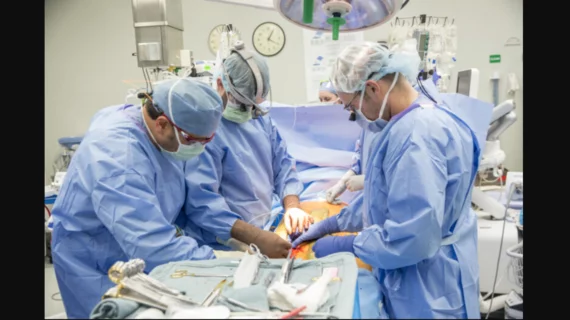‘A team effort’: VUMC sets world record for heart transplants in a single year
The Vanderbilt Transplant Center, part of Vanderbilt University Medical Center (VUMC), has set a world record by performing 174 adult and pediatric heart transplants in a single year. This 2024 total represents an increase of 36% compared to 2023, and 10 of the patients receiving a new heart were young children.
“I have to say, even I was surprised at the final number of transplants,” Ashish Shah, MD, professor and chair of cardiac surgery at VUMC, said in a statement. “But this one year was really built on 10 years of hard work, innovation and our reputation to do difficult things.”
VUMC has been known for years as a world leader in heart transplantation, using advanced techniques and innovative procedures to perform one successful implant after another. It first started implanting adult hearts back in 1985, opening its pediatric program just two years later.
Each transplant is performed by a full team of cardiologists, cardiac surgeons, intensivists, nurses, advanced practice providers, pharmacists, social workers, case managers, rehab specialists, financial coordinators, nutrition specialists, organ procurement coordinators, preservationists, operating room staff, cardiac anesthesiologists and nurses anesthetists, “among others.”
“This milestone reflects the extraordinary skill of our entire transplant team and the seamless collaboration across every aspect of patient care,” Bret Alvis, MD, associate professor of anesthesiology at VUMC and interim medical director of the Surgical Cardiovascular Intensive Care Unit, said in the same statement. “It’s truly exciting to see how our combined efforts continue to push the boundaries of what’s possible in heart transplantation.”
“We are honored to be part of this significant achievement,” added Maricar Malinis, MD, an associate professor of medicine at VUMC and medical director of its transplant infectious diseases program. “Each specialty, including infectious diseases, plays a crucial role in optimizing transplant candidates before surgery and minimizing potential post-transplant complications. Transplantation truly is a team effort, with the shared goal of enhancing patients’ quality of life.”

